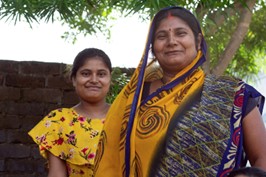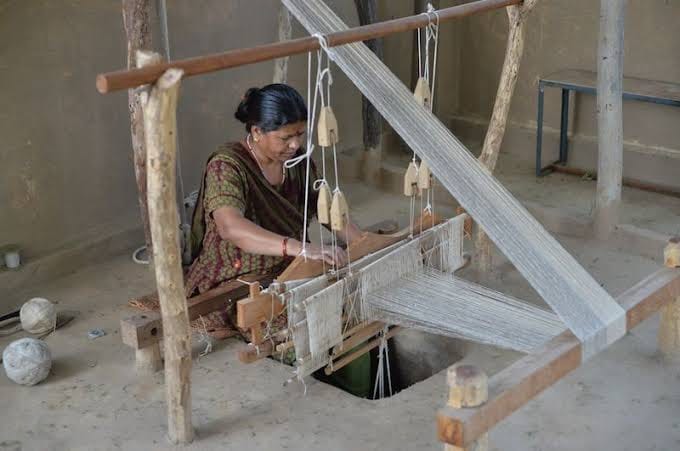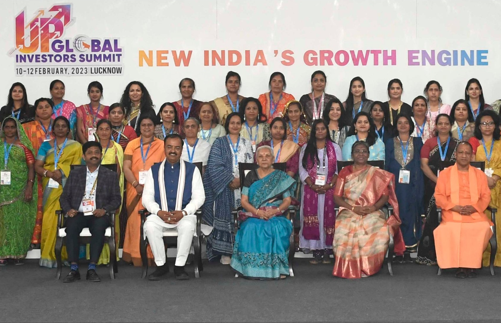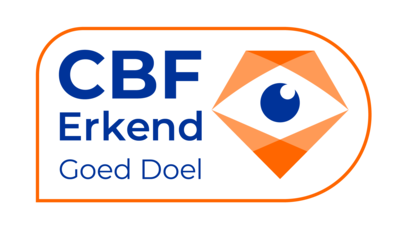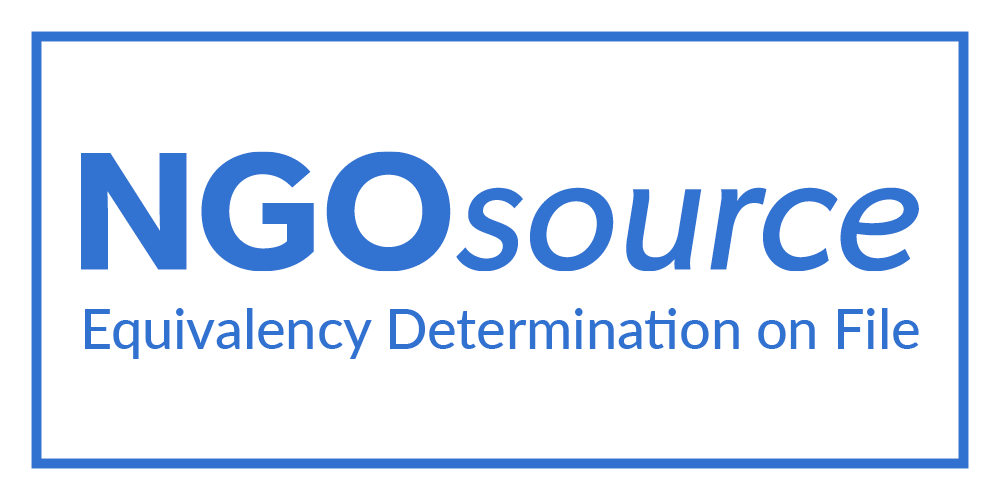Interview with a woman living in rural India
“The technique of spinning is a skill which I inherited from my mother. It was considered an asset, something a girl needed to master so she would be able to take care of an income on her own,” says Suneeta. “I learned how to spin at the age of six.” Suneeta, now 42 years old, spins organic cotton yarns for SPOKSS in the state of Uttar Pradesh. She works on the so-called kisan charkha, a ‘farmers’ spinning tool’, which is foldable and easy to carry.
A life changing opportunity
“When I was young, life was clearly organized in my mother’s household,” Suneeta remembers. “My mother used to spin cotton from 4AM until 8AM, keeping house until 10 o’clock and after that she worked in the fields if there was any work to be done. After that, she started spinning for two hours again, and around 7PM, it was bedtime.”
The town where Suneeta grew up is about 60 km from the small village Dariyamau where she has lived since her marriage.
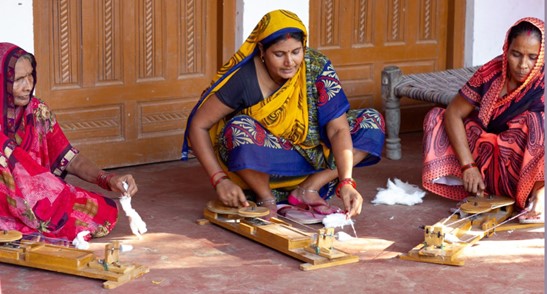
“I married when I was 18. We lived in a mud house and for me there was nothing else to do but housekeeping. There was no work for spinners. Only five years back I got the opportunity to start working for SPOKSS. Now I live in a newly built brick house together with my daughters Kushi (11) and Mahee (7) who will soon leave for Dehli. We share a household with the sister of my mother-in-law and my oldest sister-in-law.”
Dreams of two generations
Suneeta shares the huge impact a regular income had on her life and that of her family. “I now can give myself and my daughters the opportunity to follow our dreams. Firstly it was important that I was able to save money for Maheema’s marriage. But I also made sure she is properly educated. While I only went to school up to the fifth grade, I made sure she finished the 12th grade. This will enable her to make her dream come true in Delhi: go to university to study social science and become a teacher.”
Asked about her own dream, Suneeta’s eyes start to twinkle. “My dream is different. With the money earned, I want to buy a piece of land nearby to grow mint and poppy. The mint will be used for making oil, which is very popular. To be able to grow poppies for poppy seed, I first need to apply for a license and that will take some time.”
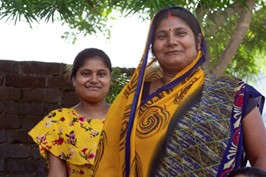
Suneeta with her daughter Maheema (20)
Taking up more responsibilities
Suneeta was the first woman in the community who applied to spin yarns for SPOKSS. Now she has taken up a supervisory role . She checks the quality of the cotton yarns, makes sure everyone gets her share of cotton and does a quality spinning job.
Her husband is not so much a part of Suneeta’s story because he is absent most of the time. “My husband works as a shopkeeper in Lucknow. His employer takes care of food and lodging. Only four days a month will he come to Dariyamau,” Suneeta explains.
Suneeta and all other women of the community who spin for SPOKSS now have a healthcare card for free medical treatment, a bank account and even a provident fund account: 15% of their income, supplemented with 15% from their employer is deposited into this account for their pension.
SPOKSS was established in 2020 as a non-profit organization. As a textile manufacturer it employs around 3,000 artisans in rural parts of the state Uttar Pradesh. The artisans spin, weave and dye organic cotton. The hand-made fabrics are sold for garment construction and home linens. SPOKSS sells under the KHADI trademark as the company KOSH- the treasure of Khadi in India and exports to nine countries in four continents.
